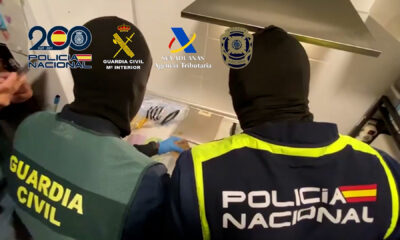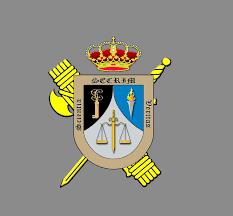

Spanish National News
QUESTIONS OVER TERRORIST FREEDOM
As more and more terrorists, murderers and rapists are freed by the Spanish judicial system, doubt is growing as to the legality of the situation that has seen scores of prisoners released.
It was in October that the European Court of Human Rights rul…

As more and more terrorists, murderers and rapists are freed by the Spanish judicial system, doubt is growing as to the legality of the situation that has seen scores of prisoners released.
It was in October that the European Court of Human Rights ruled that the “Parot doctrine”, named after convicted Eta member Unai Parot, was unconstitutional. The doctrine, which was introduced in 2006, aimed to ensure that convicted Eta terrorists remained incarcerated, effectively for life, rather than being allowed free based on a prisoner´s entitlement that their sentence is automatically reduced by working whilst in prison. Under Spanish Law, the maximum length of time any prisoner can serve is 30 years, which is subsequently theoretically reduced from the moment they enter prison.
The case came to light when one such convicted terrorist, Inés del Río Prado, sentenced in 1989 to 3,828 years in prison having found to be responsible for the deaths of 24 people, including 12 Guardia Civil officers, in Madrid, took her case to Europe, which was subsequently won. The Strasbourg court ordered her immediate release, as well as ruling her entitlement to 30,000 euro compensation for the length of time she has now served, some 24 years, which is more than she would have under the rules of reduction.
The judiciary examined the case and ruled that the court ruling was not negotiable, also stating that the order extends to other prisoners serving extended sentences, of which at least 60 of the 600 Eta terrorists would qualify for freedom.
Both the ruling and the adoption of the legislation caused widespread indignation throughout Spain, with officers from the Guardia Civil and other security forces echoing the feelings of the relatives of the victims, that this was a travesty of justice and would not only make Spain an unsafe place in the future, it ridicules the loss that they have all felt.
However, over the past few weeks, the doubt of the application of the rule has grown stronger, especially the element where freedom should be extended to other prisoners, rather than solely for the person raising the case, Inés del Río Prado. After all, as a European Court ruling, should it be enforceable, it might well be used as a legal challenge for prisoners of other member states, which could mean countries like the UK having to release high profile prisoners such as Ian Brady and Robert Maudsley.
This week, as the latest batch of prisoners saw their freedom granted, a former Magistrate from the Strasbourg court, Luis del Pino, has spoken out about his surprise of the actions adopted by Spain.
In an interview, Luis del Pino has firstly stated that “there was no obligation to release Inés del Río Prado within 24 hours”, which was the claim of the Spanish courts. But, moreover, “the Parot doctrine is the first ruling by Strasbourg that was fulfilled in less than 24 hours”. He continued to explain that although the rule by the European court is binding, it is up to the country I question to decide when and how the rules are implemented.
What is perhaps now considered of greater concern to those who voiced their anger as more and more prisoners are released, is that del Pino also stated that “he judgment of Strasbourg affected only the ETA prisoner Inés del Río, and had no obligation to be automatically extended to the rest of ETA and rapists released”.
A this week closed with a total of 69 “approved” prisoners set free, including a terrorist who murdered a toddler in 1991 and a couple who killed two police officers in 1987, family members and group members of victims groups took station at the gates of a number of prisons to voice their protest as the prisoners walked free.
However, confusion seemed more apparent after another revelation that the state has opposed the release of one prisoner, Miguel Ricart, responsible for the infamous “Alcásser Girls” case, when three teenage girls from Alcásser, a small town near Valencia, who were kidnapped, raped, beaten, savagely tortured and murdered after hitchhiking to get to a disco in the nearby town of Picassent in late 1992, resulting in Ricart jailed for 170 years, whereas a second man, Antonio Anglés, remains a fugitive to this day, high on INTERPOL´s most wanted list.
One member of such a group, Ángeles Pedraza, summed up the feeling of the entire congregation, by simply saying, “They’re laughing at us”, in reference to the revelation that the ruling only applied to one prisoner, rather than the near 70 being freed. She continued, “Obviously I’m happy that as a murderer Ricart will stay in jail after the atrocity, but I do but I keep asking questions” of the actions of the state department of justice. Ricart was also released this week.
Those questions extend to the actions of the judges, with Pedranza asking “Why do the judges respond only to a covenant to free ETA?”, then questioning if there is actually a “secret pact” between the government and ETA, but accepting, “These questions, like most, remain unanswered”.
The Criminal Chamber of the National Court agreed to release of 14 other ETA prisoners this week, including Francisco Javier Martínez Izaguirre, arrested in 1992 and given 744 years in prison for six murders, one victim being 2 year old Fabio Moreno, the son of a Guardia Civil officer, as well as supplying weapons, explosives and being directly responsible for a number of attacks.
Inmaculada Pacho is an ETA terrorist released from Campos del Río prison in Murcia, arrested in 1991 and given a total of 500 years in prison for several murders, four attacks, including a police station in Burgos, six frustrated murders and 48 offences of causing injury.
Miren Gotzone López de Luzuriaga, along with partner Ignacio Fernández de Larrinoa, were sentenced to prison for the murder of two police officers in 1987, two years later, being responsible for an attempted attack on a barracks at Llodio, Álava, both now set free.
The atrocities of ETA terrorism have affected Spain for many years, with only last year Óscar Zelarain and Antoni Otegi convicted for the 2002 bombing of the Guardia Civil barracks at Santa Pola, in which a 9 year old girl, Silvia Martínez, and a 57 year old man, Cecilio Gallego Alaminos, were killed. They were sentenced to 843 years in prison, seeing justice done for those deaths, but now, with so many questions remaining unanswered, the question of justice for the victims, rather than the perpetrators, remains in doubt.
Filed under: http://www.theleader.info/article/41695/
Car and Motor Insurance | Spanish Home Insurance | International Money Transfers | Send Money to Spain | Spain Property | Online International Payments | Property in Spain
Costa Blanca Property for Sale | Cabo Roig Property for Sale | International Payments |



























